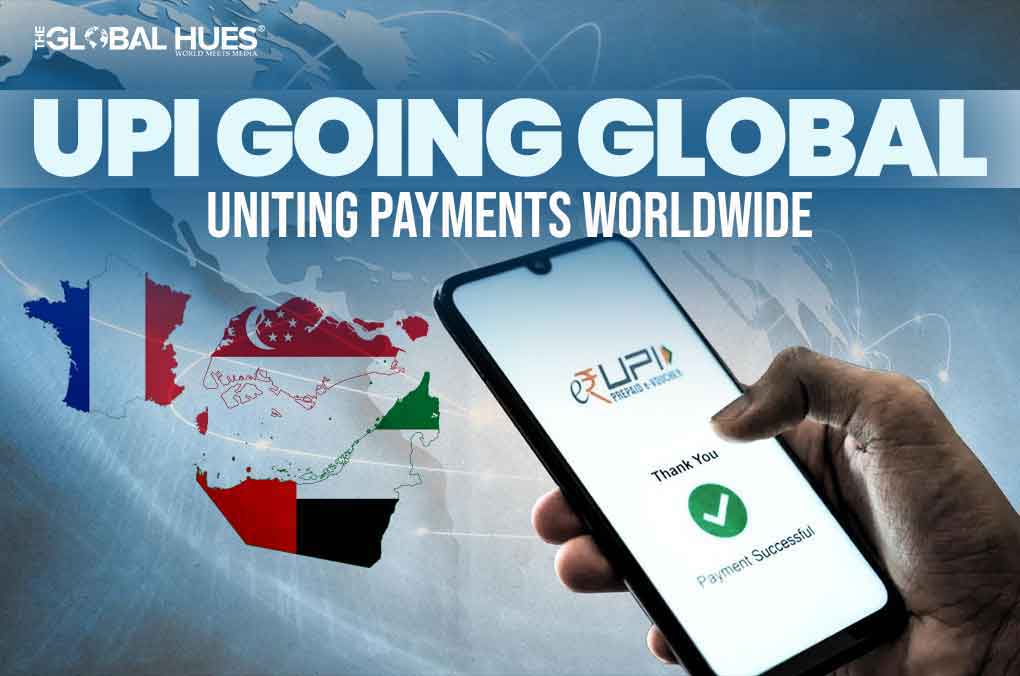On July 14, 2023, Bastille Day, a significant announcement in favour of India delighted the Indians. The Prime Minister of India, Mr Narendra Modi, was invited by the French government for the Bastille Day celebration. Though the event was successful, what caught everyone’s attention was the announcement of an agreement between the countries to use India’s homegrown UPI (Unified Payments Interface) in France. According to Prime Minister Modi, now Indian tourists can use UPI to pay in rupees. This will begin at the iconic Eiffel Tower in Paris.
Even though it is great news, it is worth noting that France isn’t the only country looking forward to adapting to the UPI in a foreign land. India has been making efforts for years to take UPI global to reduce the cost of cross-border transactions and charges incurred in remittances to India.
Revolutionising online transactions, UPI, due to its seamlessness and innovativeness, has already made a huge hit in India and is now attracting other countries as well for mutual benefits.
In this article, we will discuss how UPI is going global and revolutionising the way transactions are done on foreign soil.
Countries Adopting UPI
-
Bhutan
Bhutan is the first of India’s neighbouring countries to adopt UPI through the BHIM (Bharat Interface for Money) application, partnering with Bhutan’s Royal Monetary Authority (RMA). Both the finance ministers of the respective countries, Nirmala Sitharaman and Lyonpo Namgay Tshering, jointly launched it in 2021, making it a huge achievement for India in terms of finance and foreign relations.
-
Nepal
India deployed UPI in Nepal, where India’s NIPL (NPCI International Payments Limited) partnered with Gateway Payments Service (GPS) and Manam Infotech. This is a major step for both countries to allow digital cross-border transactions and provide convenience for Indian tourists to perform transactions without cash.
-
Oman
In 2022, Oman joined the league of UPI adaptations when NPCI (National Payments Corporations Of India) partnered with the Central Bank of Oman to introduce Rupay cards and UPI. It will create great convenience for Indian tourists and the working class in Oman in terms of remittances.
-
Malaysia
Malaysia also implemented the UPI, and Merchantrade Asia has partnered with NIPL to provide UPI services. It will offer real-time remittances to India through the UPI platform.
-
France

In France, NPCI partnered with Lyra to provide convenient UPI payments, starting from the Eiffel Tower in Paris. This move will open a huge new market for Indian innovation.
“In France, an agreement has been made for the use of India’s UPI…It will be started from the Eiffel Tower, and now Indian tourists would be able to make payments in Rupees, through UPI, in the Eiffel Tower,” said Prime Minister Modi.
-
Singapore
In Singapore, the UPI will be available through the integration of UPI and PayNow, enabling cross-border transitions.
-
Europe
To provide transaction facilities in Europe, India’s NIPL partnered with European payments facilitator Worldline.
-
United Arab Emirates
UPI was also enabled in the UAE when NIPL partnered with Mashreq Bank to provide UPI services through Mashreq’s NeoPay. As the UAE is one of the favourite tourist destinations for Indians, this will help the cross-border transition to a great extent.
-
United Kingdom
The UK will also provide both QR-based and UPI-based services through its payment provider, PayXpert. This will help the users have a seamless experience while performing transactions on foreign soil.
India’s Benefit from the Globalisation of UPI
As the UPI is scaling on foreign soils, the major question that arises is why India is putting lots of effort into enabling it in other countries. How will this benefit India?
Well, there are several advantages that India can derive from the globalisation of UPI; some of them are:
-
Growth of the digital economy
With UPI going global, there will be significant growth in India’s digital economy, and as UPI is one of the missions of ‘digital India, it can be regarded as a major milestone. It can also lead to more future projects and an increase in job opportunities within the Indian fintech sector.
-
Remittance and cheap cross-border transactions
With UPI, global remittance will be seamless, quick, and economical instead of a complicated and costly process. Indian people residing in foreign lands will find it very convenient to transfer money in India, and Indian tourists will have a seamless experience by paying in rupees to foreign vendors and merchants.
-
Hassle-free cashless payment
With UPI going global, people visiting foreign countries for short periods will have the convenience to use cash-free payments, thereby providing them with a hassle-free experience.
-
Showcase India’s technical capabilities
With UPI going global, India will be able to show the world its technological capabilities, gaining the trust to gain Foreign Direct Investment and other partnerships.
-
Reducing the card monopoly
The card companies that have created a monopoly will face tough competition and hopefully reduce the unreasonable cross-country transactions.
Summing Up
Numerous countries implementing India’s homegrown fintech innovation– UPI symbolises India’s growth trajectory. With the implementation of UPI on foreign soil, there is no doubt that India will reap significant benefits. As an increasing number of countries adopt UPI, India is leaving a notable mark in fintech innovation.




